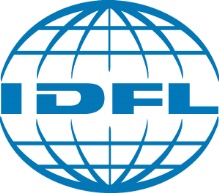Global Organic Textile Standard (GOTS)
The global demand for organic material is surging. Year over year, the amount of organically grown and harvested crops increases. While this growth is beneficial for farmers, suppliers, consumers and the planet, it comes with its own set of challenges.
From the production stage to the end-user, these textiles pass through hundreds of hands. In a world where complex international supply chains are comprised of dozens of intermediaries and are responsible for transporting and delivering organic goods, how can the authenticity of those textiles be verified? The solution to this challenge is the adoption of the Global Organic Textile Standard.
What is the Global Organic Textile Standard?
The Global Organic Textile Standard (GOTS) is a voluntary global standard that was developed in partnership with the international communities involved in all aspects of textile production to create a standard that can be verified and authenticated. These communities include organic farmers, environmental organizations, the textile and apparel industry, labor unions and farmworkers organizations and more.
Such a standard provides assurances for consumers and manufacturers about the veracity of the “organic” claims on their materials and provides the transparency necessary to ensure that these standards are met. What are the key elements of the Global Organic Textile Standard?
- GOTS certified material must contain a minimum of 70% organic fibers.
- There are strict environmental and social criteria that must be met to gain the GOTS certification.
- Environmental criteria include the separation of organic fibers from conventional fibers, equipment (including wastewater treatment) must be managed in an environmentally sustainable manner, prohibition on hazardous materials in chemical inputs and more.
- Social criteria include no child labor, employment is freely chosen by the employee, the ability to have collective bargaining agreements, occupational health and safety protocols and more.
- Every step in the process is covered by the Global Organic Textile Standard: from the first processes stage to spinning, to weaving and knitting, to the wet processing and manufacturing and finally to the trading stage. They all need to comply with the GOTS criteria.
- All processors, manufacturers and traders of goods must be GOTS certified. Certification is given by Global Organic Textile Standard approved certification bodies.
- Certification bodies rigorously ensure all aspects of the supply chain comply with the GOTS standard through regular audits and on-site inspections
Why Should You Be Certified?
The Global Organic Textile Standard allows you as a company to make truthful and verifiable claims about the organic nature of your products. Companies and consumers continue to adopt more ethical and environmentally friendly products and with the Global Organic Textile Standard, you can provide verifiable assurances of responsible manufacturing and practices.
What are the Benefits of Being Certified?
As a Global Organic Textile Standard certified company or producer, the “organic” claims surrounding your products and materials are traceable and confirmable. As an organization, your claims of sustainability and commitments to environmental goals are evident through your dedication to certified organic materials.
What are the Next Steps?
IDFL is a leader in the certification of products and materials, including the Global Organic Textile Standard. Reach out to IDFL today at audits@idfl.com and see how IDFL audits can lead to you earning the Global Organic Textile Standard certification.

